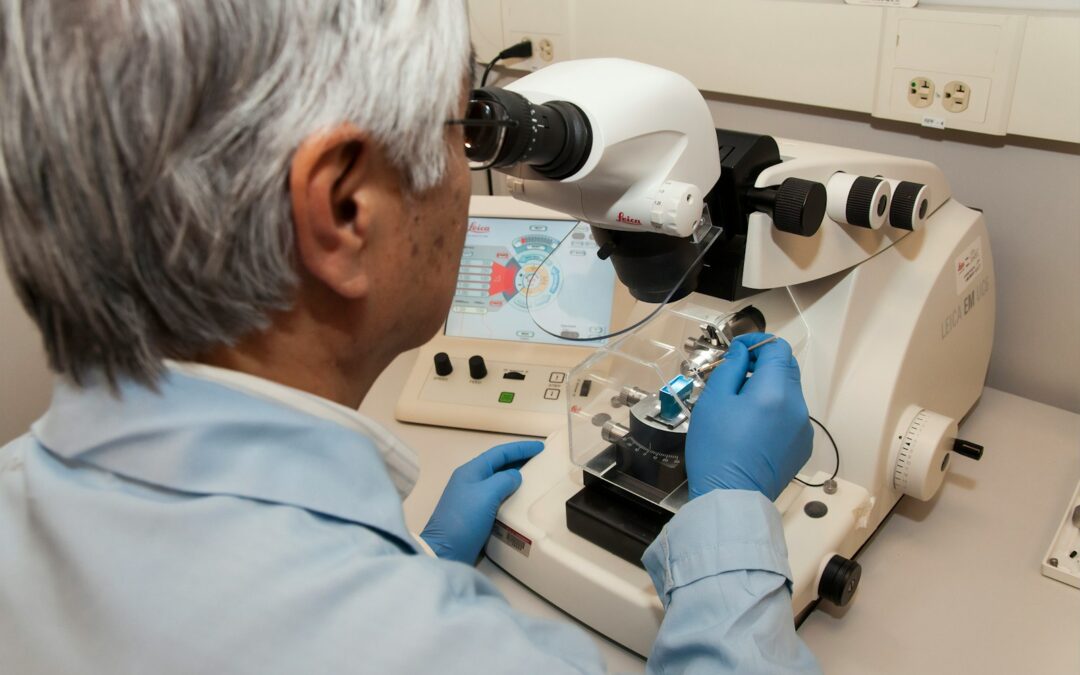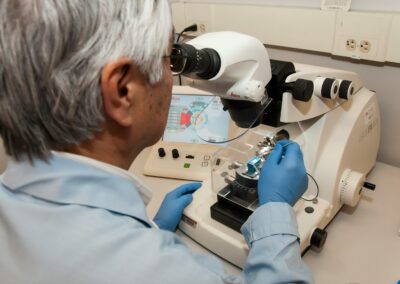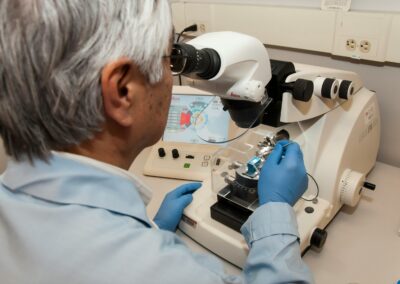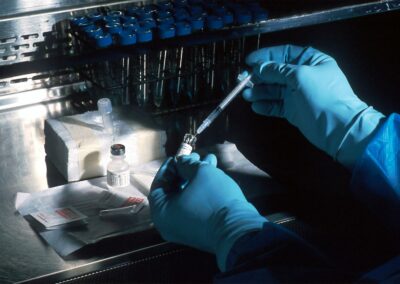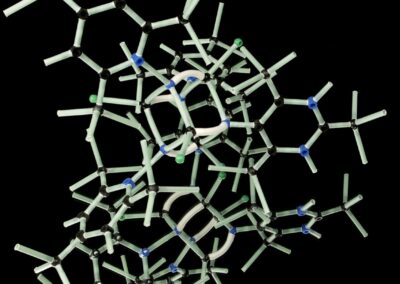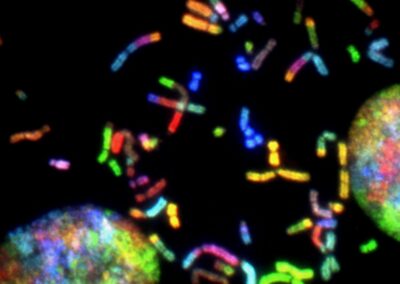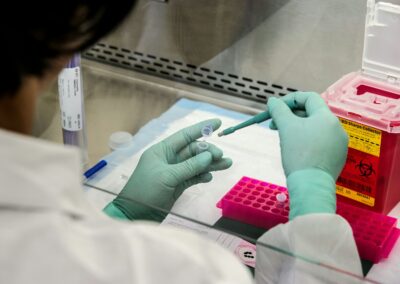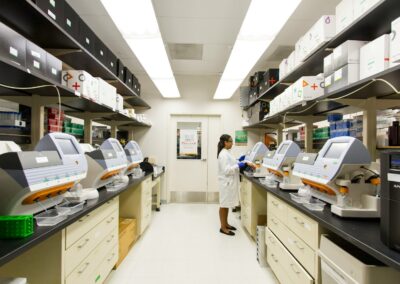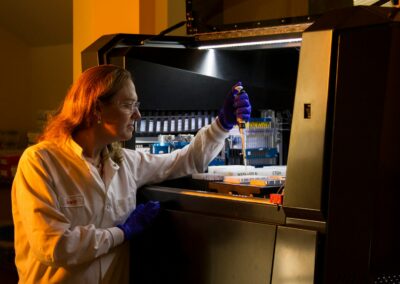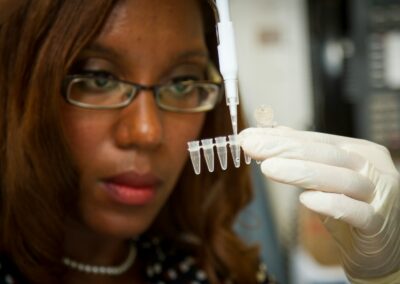Exploring the Potential of Genetic Engineering in Medical Advancements
Genetic engineering holds transformative potential for medicine, offering unprecedented opportunities to cure diseases, enhance health, and extend human lifespan. In regions like Saudi Arabia and the UAE, where technological innovation is a cornerstone of development, the benefits of genetic engineering are particularly compelling. By enabling precise modifications to human DNA, genetic engineering can address a wide range of medical conditions that were previously untreatable.
In Saudi Arabia, genetic engineering is poised to revolutionize the treatment of genetic disorders such as cystic fibrosis, muscular dystrophy, and hemophilia. Through techniques like CRISPR, scientists can correct faulty genes at the molecular level, effectively curing these conditions and improving the quality of life for affected individuals. Similarly, in the UAE, genetic engineering is being harnessed to develop personalized medicine approaches. By tailoring treatments to an individual’s genetic makeup, healthcare providers can achieve higher efficacy and reduce the risk of adverse reactions, leading to better patient outcomes.
Moreover, genetic engineering can significantly contribute to the prevention of diseases. By identifying and modifying genetic predispositions to conditions like heart disease, diabetes, and certain cancers, it is possible to reduce the incidence of these diseases. In Riyadh and Dubai, public health initiatives are increasingly focusing on genetic screening and preventive interventions, which can alleviate the burden on healthcare systems and promote a healthier population. The economic benefits of reducing the prevalence of chronic diseases through genetic engineering are substantial, as they can lower healthcare costs and enhance workforce productivity.
Addressing Ethical Dilemmas in Altering Human DNA
While the potential benefits of genetic engineering in medicine are immense, they are accompanied by significant ethical dilemmas. Altering human DNA raises profound questions about the nature of humanity, the limits of scientific intervention, and the potential for unintended consequences. In the Middle East, where cultural and religious values play a crucial role in shaping ethical norms, these dilemmas require careful consideration and dialogue.
One of the primary ethical concerns is the risk of unintended consequences. Genetic modifications, especially those that are heritable, can have unpredictable effects on future generations. Ensuring the safety and efficacy of genetic interventions is paramount, and this necessitates rigorous scientific oversight and long-term monitoring. In Saudi Arabia and the UAE, regulatory frameworks are being developed to address these concerns, with stringent guidelines for clinical trials and ongoing evaluation of genetic engineering technologies.
Another ethical issue is the potential for inequality and discrimination. Access to advanced genetic treatments may be limited to those who can afford them, exacerbating existing disparities in healthcare. Additionally, the possibility of genetic enhancements—modifying DNA for traits such as intelligence, physical appearance, or athletic ability—raises concerns about creating a societal divide between those who are genetically enhanced and those who are not. Policymakers in Riyadh and Dubai are actively working to ensure that genetic engineering advances are accessible to all segments of society and that ethical standards prevent misuse.
Balancing Innovation with Ethical Leadership
Balancing the innovative potential of genetic engineering with ethical leadership is essential for its responsible development and implementation. In Saudi Arabia and the UAE, this balance is being achieved through a combination of advanced technologies, effective communication, and executive coaching.
Artificial Intelligence (AI) and blockchain are playing pivotal roles in enhancing the ethical oversight of genetic engineering. AI can analyze vast datasets to predict and mitigate risks, while blockchain provides a transparent and secure platform for tracking genetic modifications. These technologies ensure accountability and build public trust in genetic engineering practices. In Riyadh and Dubai, integrating AI and blockchain into healthcare systems is enhancing the safety, transparency, and ethical governance of genetic engineering.
Effective communication is crucial in addressing public concerns and fostering acceptance of genetic engineering. Clear and transparent information about the benefits, risks, and ethical considerations of altering human DNA helps build public trust and support. Public engagement initiatives in the UAE and Saudi Arabia, such as forums, educational campaigns, and media collaborations, are essential for informing and involving the public in the ethical discourse on genetic engineering.
Executive coaching services are also vital in developing ethical leadership within the biotechnology sector. Leaders must be equipped to navigate complex ethical landscapes, make informed decisions, and communicate effectively with stakeholders. In Saudi Arabia and the UAE, executive coaching programs provide tailored support to business executives and mid-level managers, fostering a culture of ethical innovation and corporate responsibility.
#GeneticEngineering #MedicalEthics #HumanDNA #Biotechnology #AIinMedicine #BlockchainInHealthcare #DubaiInnovation #RiyadhTechnology #BusinessSuccess #ExecutiveCoaching #EffectiveCommunication

